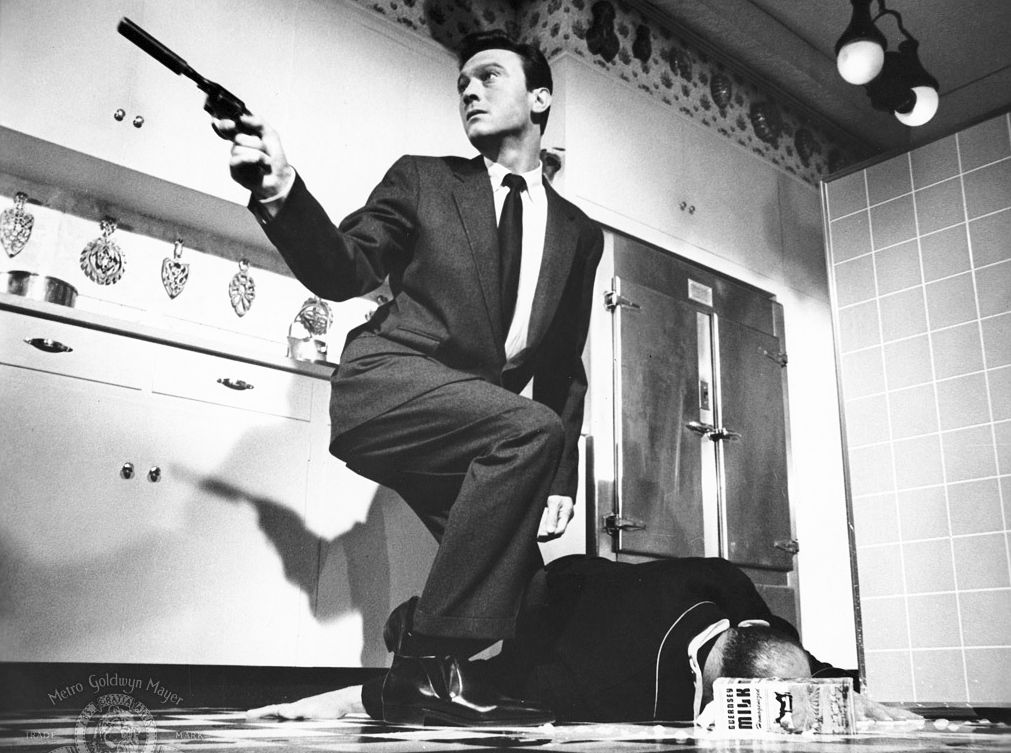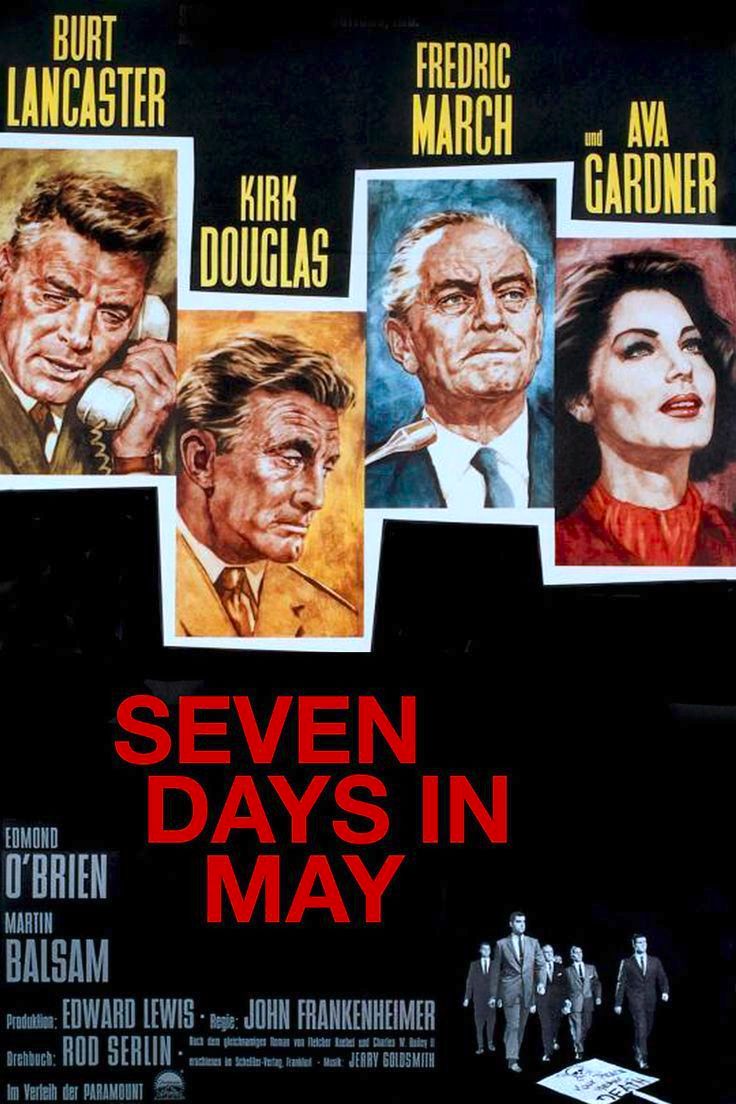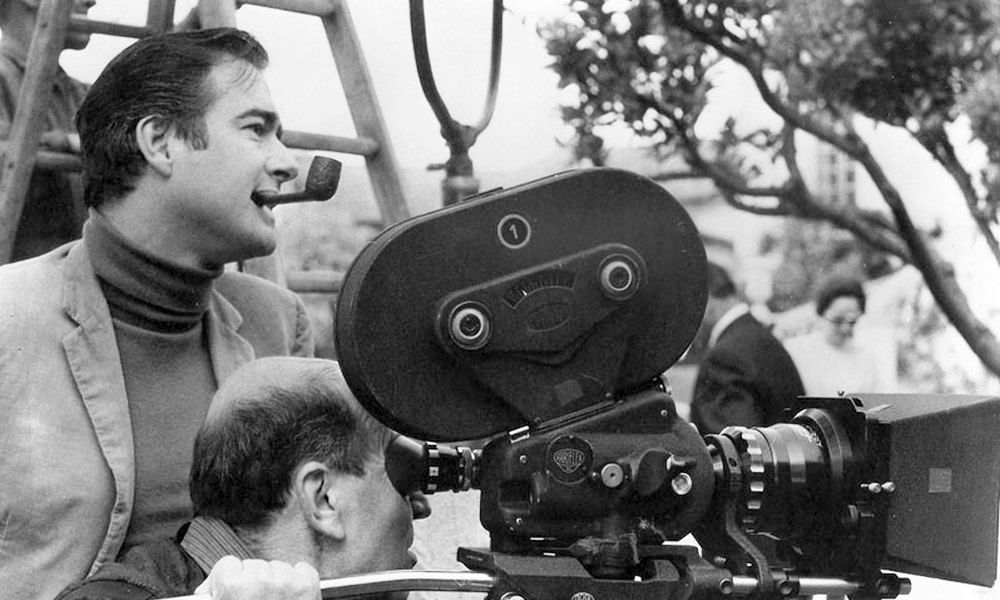“A former TV director whose early film career in the 1960s made him one of Hollywood’s new shining lights, Frankenheimer’s searing studies of alienation marked him as a visually acute director of somber, often depressing movies. He most successfully directed thrillers; his other films were generally plodding affairs that were attacked by critics and ignored by audiences.” - The Encyclopedia of Hollywood, 2004
John Frankenheimer
Director
(1930-2002) Born February 19, New York City, New York, USA
(1930-2002) Born February 19, New York City, New York, USA
Key Production Country: USA
Key Genres: Drama, Crime, Thriller, Action, Paranoid Thriller, Psychological Drama, Crime Thriller, Political Thriller, Psychological Thriller, Prison Film, Action Thriller, Biopic
Key Collaborators: Burt Lancaster (Leading Actor), Edward Lewis (Producer), Lionel Lindon (Cinematographer), Henry Berman (Editor), Ferris Webster (Editor), Edmond O'Brien (Leading Character Actor), Maurice Jarre (Composer), Evans Evans (Character Actor), Eva Marie Saint (Leading Actress), Gene Hackman (Leading Actor), Karl Malden (Leading Actor), Fredric March (Leading Actor)
Key Genres: Drama, Crime, Thriller, Action, Paranoid Thriller, Psychological Drama, Crime Thriller, Political Thriller, Psychological Thriller, Prison Film, Action Thriller, Biopic
Key Collaborators: Burt Lancaster (Leading Actor), Edward Lewis (Producer), Lionel Lindon (Cinematographer), Henry Berman (Editor), Ferris Webster (Editor), Edmond O'Brien (Leading Character Actor), Maurice Jarre (Composer), Evans Evans (Character Actor), Eva Marie Saint (Leading Actress), Gene Hackman (Leading Actor), Karl Malden (Leading Actor), Fredric March (Leading Actor)
“Having easily made the transition from live TV drama to feature films during the early 60s, John Frankenheimer was, for a short period (1962-64), one of the most highly regarded of the new young talents of the American cinema… Frankenheimer estimates that he directed about one hundred-and-twenty-five live TV dramas, most notably for Playhouse 90.” - Joel W. Finler (The Movie Directors Story, 1985)
“John Frankenheimer was one of the few TV pioneers who strived to compose innovative and striking visuals. Soon he was applying these techniques to features, making his big-screen debut with The Young Stranger (1957)… In retrospect it seems a shame that John Frankenheimer was not afforded more opportunities to demonstrate his considerable talents. It is interesting to remember that, besides his persistent ability to excite and entertain audiences, the action in Birdman of Alcatraz was mostly restricted to a prison cell, as was the much-admired detoxification scene in French Connection II. Only a great talent could create compelling cinema in such simple settings.” - Darryl Wiggers (501 Movie Directors)

The Manchurian Candidate (1962)
“His body of work is notable for both its immensity (having directed thirty feature films, four films for cable, and over fifty plays for television) and its influence. What is most remarkable about this director, however, is his pioneering of the modern-day political thriller; Frankenheimer began his career at the peak of Cold War politics in the 1950s and subsequently carved a niche in Hollywood… Frankenheimer’s emergence as a film-maker in the 1960s coincided with a crisis in the Hollywood studio structure. Faced with staggering competition related to the proliferation of television as well as other leisure activities during the 1950s, Hollywood began to lose its rigorous hierarchical character as the old studio oligarchs jumped ship. This opened up the industry for experimentation and made way for directors like Frankenheimer, whose critical eye had been shaped by television and the rumblings of European art cinema.” - Stephen Charbonneau (Contemporary North American Film Directors, 2002)
“In the 1960s, John Frankenheimer was touted as one of the most exciting new filmmakers of those tumultuous times, an American auteur in the making. Yet over the next two decades he looked more like a journeyman, an anonymous professional with a pragmatic approach to indifferent material. Both these versions hold some truth. It’s also the case that much of Frankenheimer’s best work was for television - where he cut his teeth directing live drama in the 1950s, and to which he returned to make his last worthwhile films in the 1990s.” - Tom Charity (The Rough Guide to Film, 2007)
“After Seven Days in May (1964), he seemed firmly entrenched at the top echelon of Hollywood’s directors, a concerned observer of the American social and political scene who seemed capable of drawing a rewarding balance between form and content in his films. But then came a period of European residence and a long dry spell during which Frankenheimer seemed to be losing his edge by brandishing style for its own sake.” - The Film Encyclopedia, 2012
“When this director sticks to plot and forgets about heavy theme, as in French Connection II (75), he can be close to brilliant. But when trying to express a complicated statement cloaked in a slow-moving narrative, as in The Manchurian Candidate (62) and The Fixer (68), Frankenheimer often fails.” - William R. Meyer (The Film Buff's Catalog, 1978)
"People tend to divide my work into the epics, like Grand Prix, and the intimate films like Birdman of Alcatraz and The Fixer. Actually, all of my films have the same theme, and that's a definite choice on my part. I take a character and push him to his physical or emotional limit, to see how he reacts. I think that's the only way you can ever really reach the limits of a human personality, and that's what I'm interested in exploring in my films." - John Frankenheimer (Roger Ebert Interview, 1971)
Selected Filmography
{{row.titlelong}}
GF Greatest Films ranking (★ Top 1000 ● Top 2500)
21C 21st Century ranking (☆ Top 1000)
T TSPDT N 1,000 Noir Films
R Jonathan Rosenbaum S Martin Scorsese
21C 21st Century ranking (☆ Top 1000)
T TSPDT N 1,000 Noir Films
R Jonathan Rosenbaum S Martin Scorsese
John Frankenheimer / Fan Club
Colin Trevorrow, Frederic Gimello, Frank Darabont, José Luis Losa, Bertrand Tavernier, Christopher McQuarrie, Spike Lee, Martin Scorsese, Michael Sragow, Anna Biller, Farran Smith Nehme, David Sterritt.
Colin Trevorrow, Frederic Gimello, Frank Darabont, José Luis Losa, Bertrand Tavernier, Christopher McQuarrie, Spike Lee, Martin Scorsese, Michael Sragow, Anna Biller, Farran Smith Nehme, David Sterritt.
"Fan Club"
These film critics/filmmakers have, on multiple occasions, selected this director’s work within film ballots/lists that they have submitted.
These film critics/filmmakers have, on multiple occasions, selected this director’s work within film ballots/lists that they have submitted.


